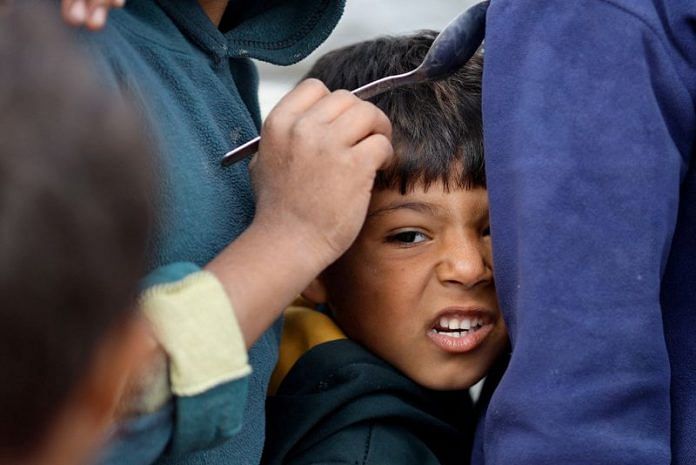By Gabrielle Tétrault-Farber
GENEVA (Reuters) -The World Food Programme said on Tuesday that very little food assistance has made it beyond southern Gaza since the start of the conflict and that the risk of pockets of famine in the Palestinian enclave remained.
Israel’s offensive launched in the wake of a deadly rampage by Hamas militants in southern Israel on Oct. 7 has displaced most of Gaza’s 2.3 million population and caused acute shortages of food, water and medical supplies.
At least 25,295 people in Gaza have been killed, according to Palestinian authorities, with thousands more feared buried under the rubble of a coastal strip largely laid to waste.
“It’s difficult to get into the places where we need to get to in Gaza, especially in northern Gaza,” said Abeer Etefa, WFP spokesperson for the Middle East.
“Very little assistance has made it beyond the southern part of the Gaza Strip … I think the risk of having pockets of famine in Gaza is very much still there.”
Since the start of hostilities, aid deliveries to northern Gaza have been limited, and the area was cut off altogether from external aid for weeks earlier in the conflict.
Etefa noted that there was a “systematic limitation on getting into the north of Gaza, not just for the WFP”.
“This is why we’re seeing people becoming more desperate and being impatient to wait for food distributions, because it’s very sporadic,” she said.
“They don’t get it frequently, and they have no trust or confidence that these convoys will come again.”
The U.N. humanitarian office (OCHA) also said this month Israeli authorities were systematically denying it access to northern Gaza to deliver aid and this had significantly hindered the humanitarian operation there.
Israeli authorities have previously denied hampering aid and say they work to minimise harm to civilians.
Israel said on Monday said it was making efforts to help keeping hospitals running, delivering fuel and medical aid and that it expected more field hospitals to be established in the coming days.
OCHA said that in the first two weeks of January, humanitarian agencies had planned 29 missions to deliver essential supplies to areas to the north of Wadi Gaza in the northern part of the enclave.
Only 24% were carried out either fully or partially, which OCHA said represented a significant increase in denials compared with the previous months.
“These denials prevent a scale-up in humanitarian assistance and add significant cost to the overall response,” OCHA said.
“The capacity of humanitarian agencies to operate safely and effectively also remains heavily compromised by the long-term restrictions applied by the Israeli authorities on the import of critical humanitarian equipment into Gaza.”
(Reporting by Gabrielle Tétrault-Farber; Editing by Miranda Murray, Nick Macfie and Alison Williams)
Disclaimer: This report is auto generated from the Reuters news service. ThePrint holds no responsibilty for its content.



